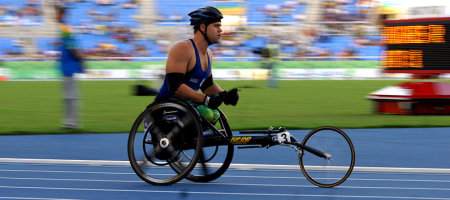San Francisco (CA) – The BSI-Toyota Collaboration Center (BTCC) has developed an advanced wheelchair control system. The brain machine interface (BMI) utilizes blind signal separation and space-time-frequency filtering technology to analyze brain-waves in under 125 milliseconds.
“Brain-wave analysis results are displayed on a panel so quickly that drivers do not sense any delay. The system has the capacity to adjust itself to the characteristics of each individual driver and thereby is able to improve the efficiency with which it senses the driver’s commands,” the company explained in a statement. “The new system has succeeded in having drivers correctly give commands to their wheelchairs. An accuracy rate of 95% was achieved, one of the highest in the world.”

BTCC also noted that plans were underway to leverage the technology for a number of medical and nursing care management applications.
“R&D under consideration includes increasing the number of commands given and developing more efficient dry electrodes. So far the research has centered on brain waves related to imaginary hand and foot control. However, through further measurement and analysis it is anticipated that this system may be applied to other types of brain waves generated by various mental states and emotions,” added BTCC.
BTCC was established in 2007 by RIKEN, an independent administrative institution as a collaborative project with Toyota Motor Corporation, Toyota Central R&D Labs and Genesis Research Institute.







